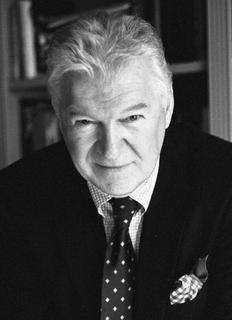
Frank Delaney's Ireland was one of the most enjoyable books that I have read in a long time. The book has been comparedto James Michener's books and Alex Haley's Roots - fiction based on history with more elemental truths in it than most non-fiction.
The book is complex and multi-layered, but easy-to-read. The story focuses on a young boy in a middle class household in rural Ireland during the 1950s and how his imagination and interest in the country's myth and history is fired by a traditional storyteller. His search for the storyteller unravels some of the elements of his own family story which people have sheltered from him.
The book accurately reflects the social environment of my parents Ireland. A rural-based community bound by morality, coming to terms with its fractured identity post-independence and oppressed by its own family secrets. It highlights the reasons why I used to get chastised as a child when I was willful or bold (and I wasn't actually that bad) with 'you'll disgrace us' or 'you'll disgrace the family name'.
The clash with modernity lives on in the small farms that I grew up on for much of my childhood. Electricity made it to my uncle's farm when I was a toddler and I can remember helping to foot the turf, drinking stewed tea and red lemonade along with a packed lunch as we worked in the bog, filling the high sided cart with sods of turf to be dragged home by a donkey and stored in a shed down the yard.
I was in primary school before they moved away the traditional cocks of hay to bales and sudden bounty of shiny nylon twine that tied the bales was a wonder material that held fittings, extended electric fences and acted as a temporary way of securing a gate to a post. The excitement of making silage with all the heavy machinery running around the place compensated for the eventual reduction in the nylon twine supply.
My only criticism is that the book portrays this rural life in a rosy way like the Famous Five books of Enid Blyton and her 'scones and lashings and lashings of ginger beer'. Whilst the upside of a closely knit community would have been more a sociable people that cars, a faster pace of life and commuting no longer facilitate. Life is hard and it requires commitment to get up and 'fodder' animals in the early hours of a winters morning, clear out stables, dig out potatoes out of a storage heap that's frozen over, pull in hay in the baking sun, dig a turf bank or repair ditches.
The Raleigh bicycle with one gear and a heavy frame that you could get in any colour so long as it was black was the standard mode of transport. They lasted forever, it would be common to see these rust covered scrap heaps parked up and then the owners come along jump and go. This was also the only way to get your shopping (or messages as it would be called). It had levers rather than brake cables with thick chromed steel rods and linkages running to both the front and the rear brake pads. That may mean a round trip of 14 - 20 miles with your shopping on a bike.
The only concession to modernity would be a seat protector - there would be a plastic fitted shower cap put on over the leather coil sprung seat so that when the owner came out to ride the bicycle away he would not have the discomfort of a wet bum.
Photograph by Jerry Bauer.